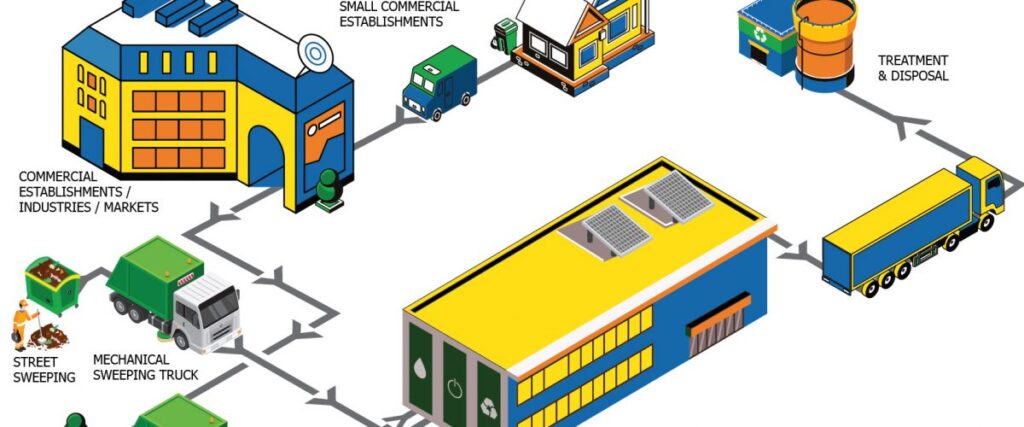Municipal Waste

Municipal solid waste is generated by households, offices, hotels, shops, schools, and other institutions, and includes major components food waste, paper, plastic, rags, metal, and glass, small quantities of demolition and construction debris, excluding hazardous waste.
To prohibit littering and facilitate compliance, the process of municipal solid waste collection is categorized as follows –
COLLECTION & TRANSPORTATION
At BERPL, we understand the imminent threat to our environment possessed by municipal solid waste. At the present rate of urbanization, India annually produces some 62 million tons’ worth of municipal solid waste. Hence, our services include
- Collecting waste from residential and other areas is transferred to the community bin by hand-driven carts or other small vehicles.
- Following proper norms for collecting and transporting construction or demolition waste or debris separately.
- Appropriate regulation of waste generated at dairies.
- By collecting construction or demolition wastes or debris separately by following proper norms.
We provide proficient municipal solid waste management to all and sundry.
TREATMENT, DISPOSAL & RECYCLING
BERPL provides collection services including
- Street sweeping, doorstep pickup, and transportation of waste in the most efficient way all the way to the processing centre, including the use of transfer stations where necessary.
- Partnering with multiple municipalities for the reliable collection of waste to keep cities & towns clean and for the sustainability of the planet.
- Working with a workforce of 8,000+, operations in 10+ cities in India, and owning one of the largest fleets in the country, BERPL’s expertise in this field is unparalleled.
WASTE TO ENERGY
BERPL has commissioned the largest waste-to-energy plant in India in Bawana, Delhi in 2017. Our team has mastered the art of converting waste into clean energy and valuable raw materials in an environmentally safe manner. Waste to Energy plants also reduces the amount of waste that ends up in landfills, reducing the footprint of waste on Earth.
